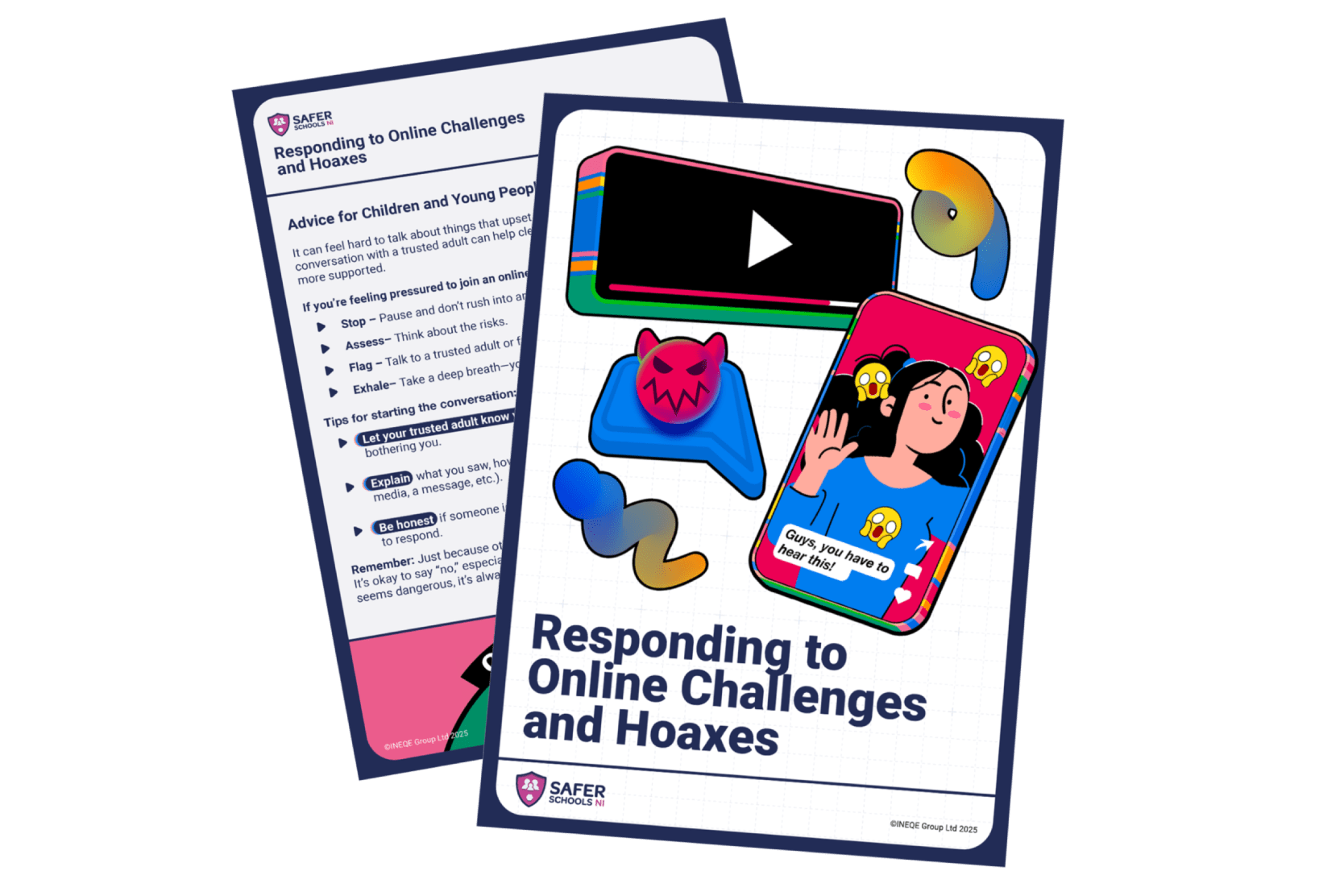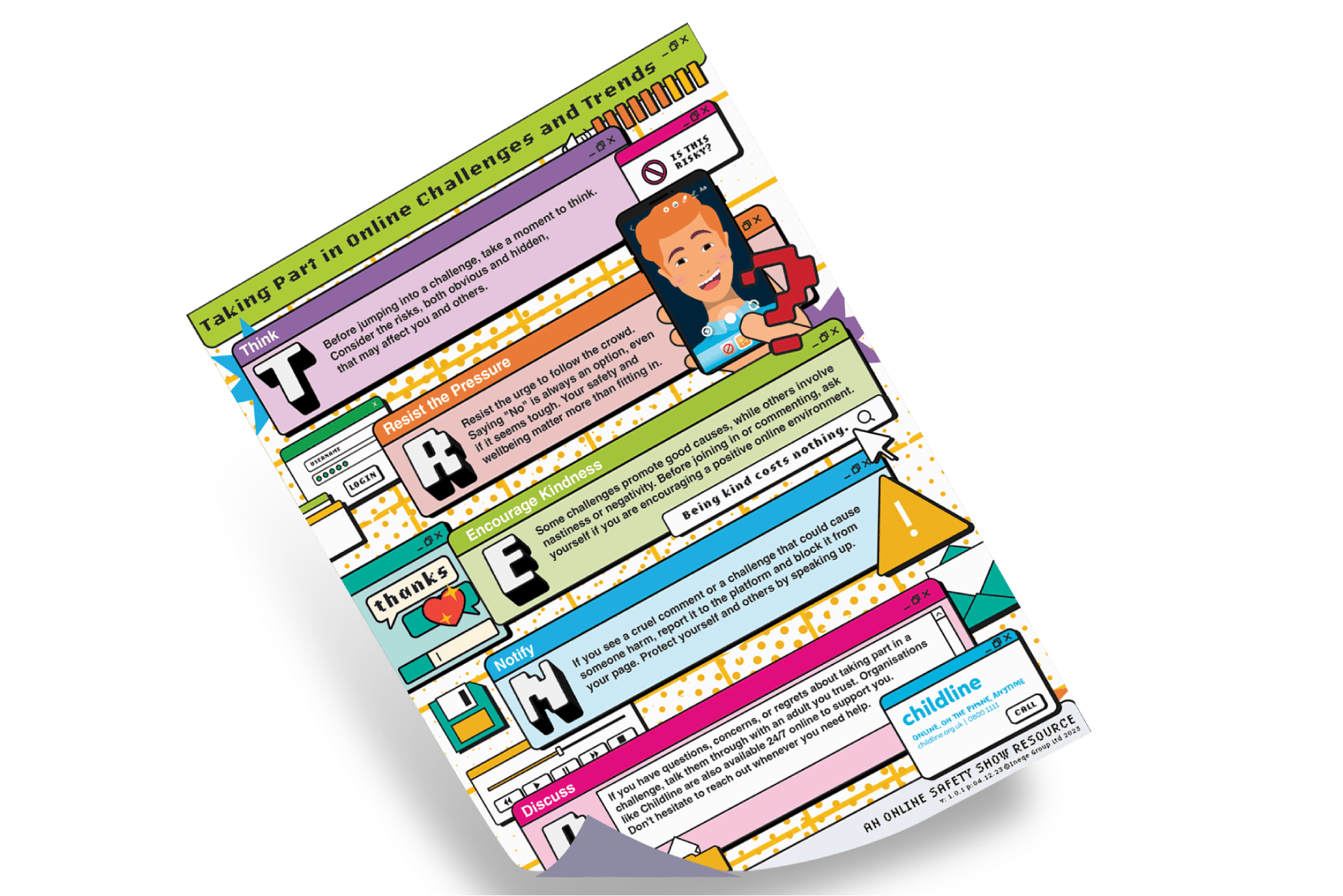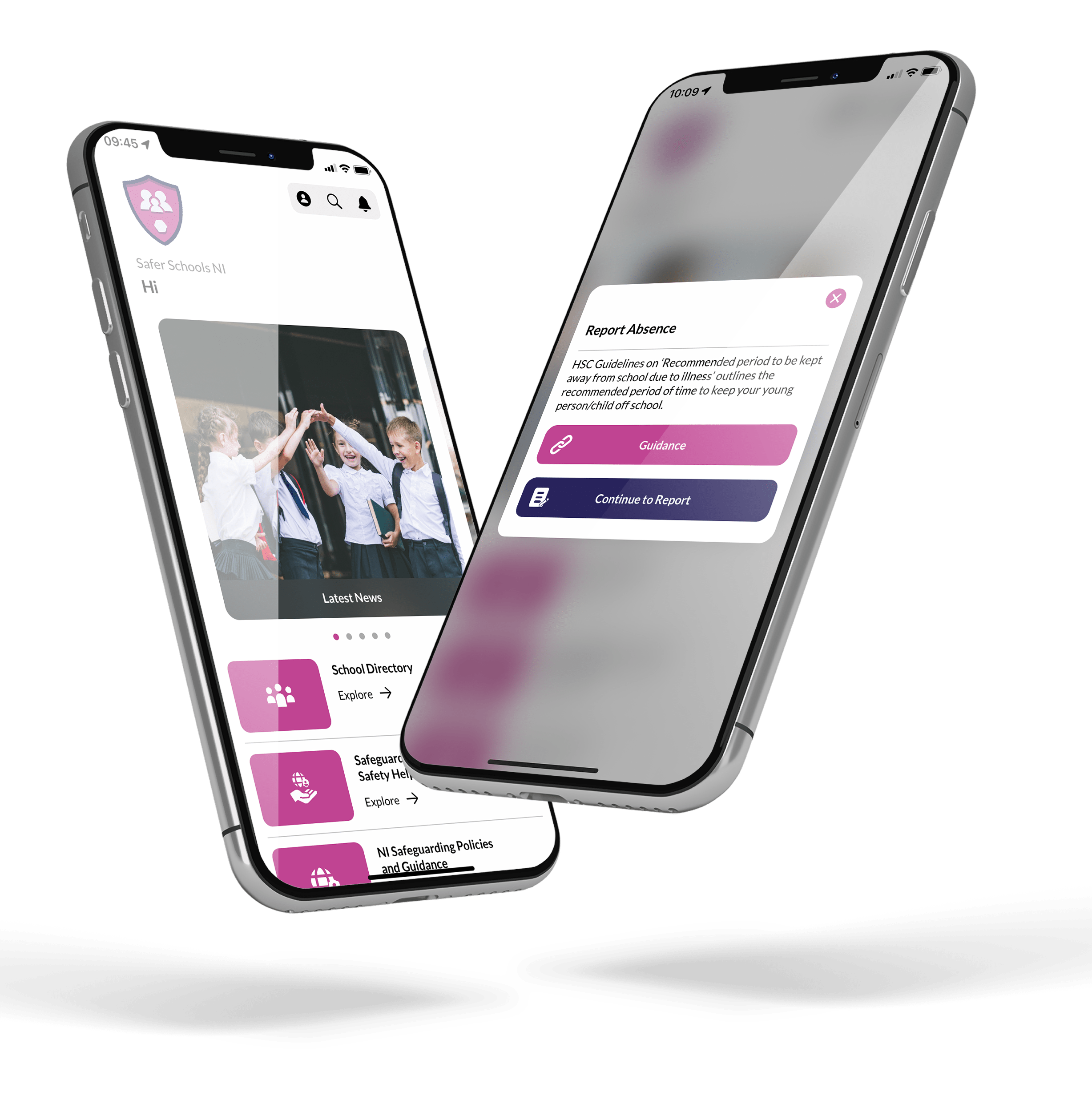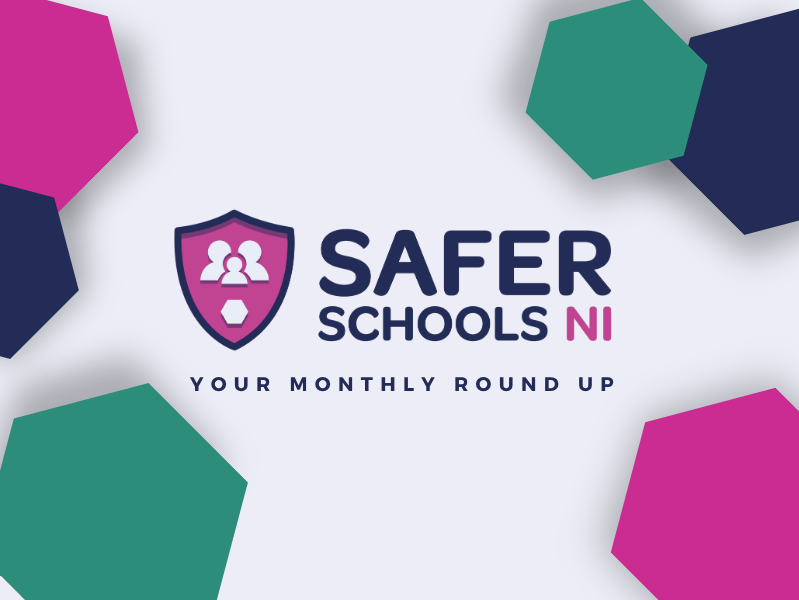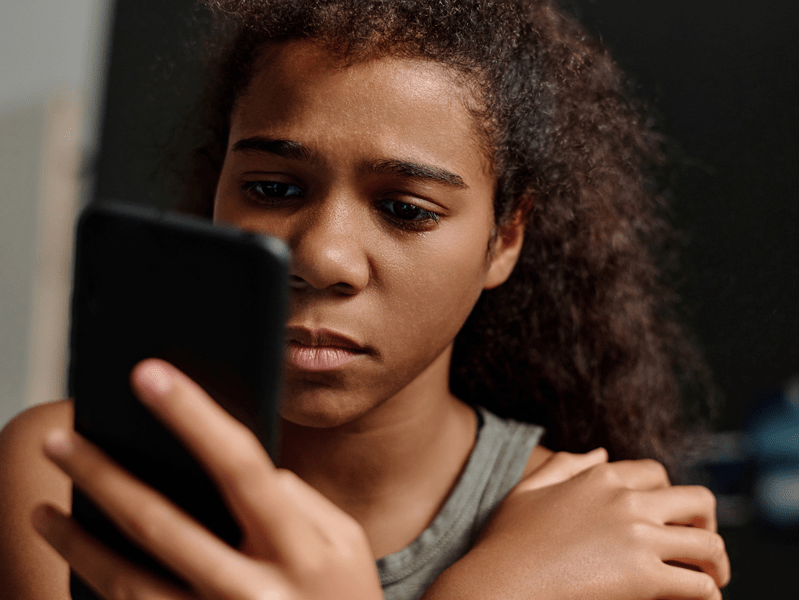Last Updated on 26th November 2025
Reading Time: 4.9 mins
April 17, 2025
Online challenges, trends or hoaxes appear frequently on social media or other online platforms. They can vary, but often encourage viewers to harm themselves, others or property in order to gain online recognition or popularity.
When an online challenge is reported in the news or media, it can be difficult to establish the facts and understand what you need to do to protect the children or young people in your care.

Why Do Online Challenges Attract Young People?

What Are the Risks?
What Can You Do?
Enable Parental Controls
Together, utilise parental controls and safety settings available on the platforms they use. Talk to young people about how to block and report on platforms and how to see less harmful content. Our Online Safety Centre provides practical guides for implementing these measures.
Further Resources
Join our Safeguarding Hub Newsletter Network
Members of our network receive weekly updates on the trends, risks and threats to children and young people online.

